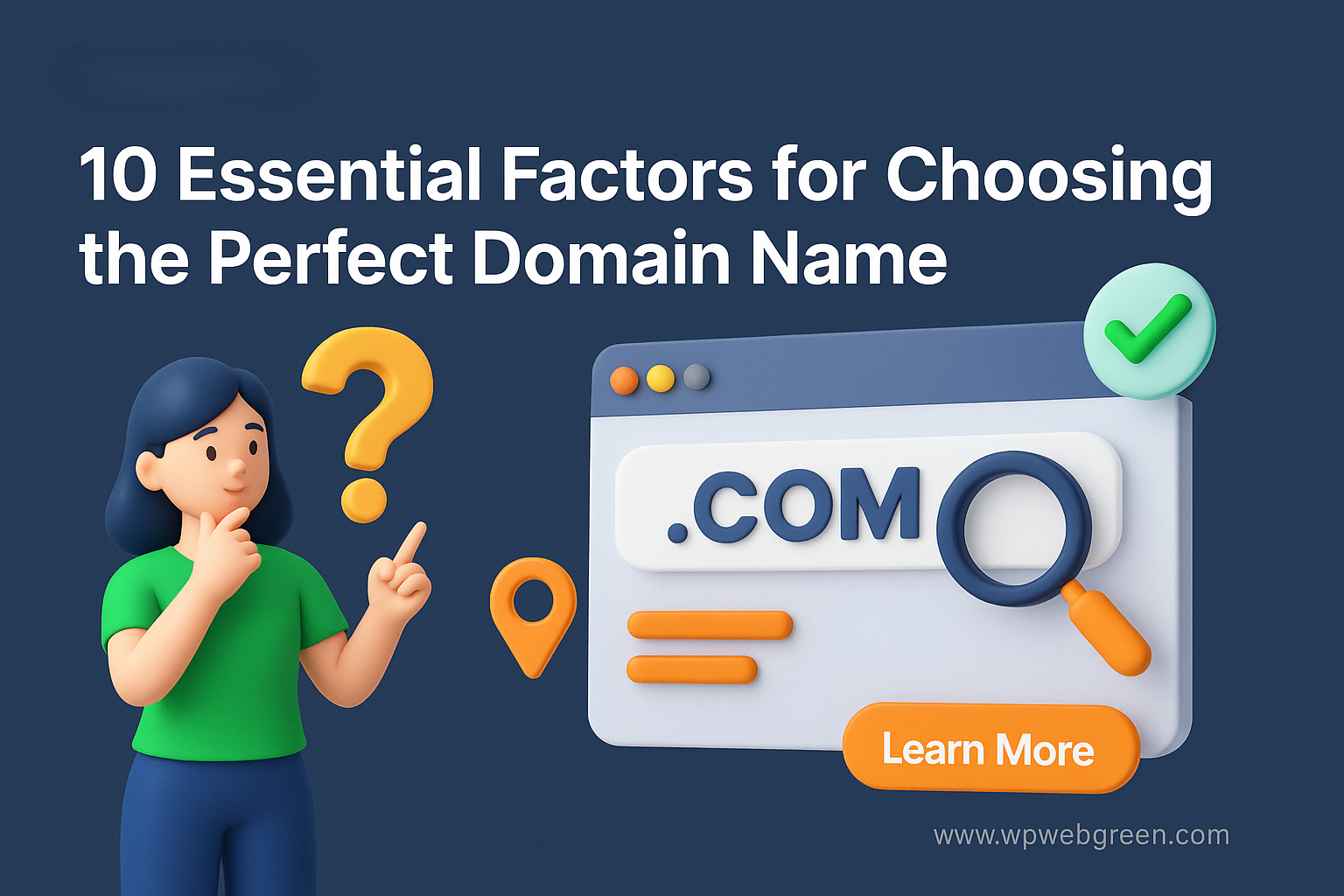Here are the 10 key elements of an effective domain name:
1. Keep It Short and Simple
Shorter domains are easier to remember, type, and share. Aim for 6-14 characters when possible. Long domains increase the risk of typos and lost traffic.
Good examples: Google.com, Apple.com
Poor examples: TheBestOnlineShoppingStoreInNewYork.com
2. Make It Memorable
A distinctive name sticks in people’s minds, leading to repeat visits and word-of-mouth referrals. Think of brands like Netflix or Twitter—simple yet unforgettable.
Tip: Avoid numbers and hyphens, which make domains harder to remember.
3. Ensure Easy Spelling and Pronunciation
If users struggle to spell or say your domain, they may land on a competitor’s site instead. Stick to common words and avoid complex spellings.
Good: Facebook.com
Poor: Fotografy.com (misspelled “Photography”)
4. Align With Your Brand
Your domain should reflect your business name, industry, or core offering. This strengthens brand consistency and helps users instantly recognize your site.
Examples:
-
Nike.com (brand name)
-
Hotels.com (industry-focused)
5. Include Relevant Keywords (When Possible)
Strategic keywords can boost SEO and help users understand your business at a glance. However, avoid stuffing too many keywords, which can make the domain sound unnatural.
Good: CarRental.com
Overdone: BestCheapFastCarRentalsOnline.com
6. Stand Out From Competitors
A unique domain helps differentiate your brand. Avoid names that are too similar to existing businesses, which can cause confusion.
Tip: Research competitors’ domains before finalizing yours.
7. Use a Trusted Domain Extension
While new extensions like .io or .ai have grown in popularity, .com remains the most trusted and recognizable. If .com is unavailable, consider .net or .org.
Best choice: YourBrand.com
Alternative: YourBrand.net (if .com is taken)
8. Make It Brandable
A strong domain should be versatile enough to support future growth. Invented names (like Google or Spotify) can be highly brandable if they’re short and catchy.
Good examples:
-
Zoom.com
-
Shopify.com
9. Future-Proof Your Domain
Choose a name that won’t limit your business if you expand into new products or markets. Avoid overly niche names that may become irrelevant.
Example:
-
Amazon.com (started with books, now sells everything)
10. Consider Geographic Relevance (If Applicable)
If your business serves a specific location, including a city or country name can improve local SEO.
Examples:
-
MiamiPlumber.com
-
LondonBakery.co.uk
Final Thoughts
Your domain name is a long-term investment, so take the time to choose wisely. A strong domain improves credibility, search rankings, and user experience. Before registering, test it with friends or colleagues to ensure it’s clear, memorable, and aligned with your brand.
Next Steps:
-
Check domain availability on registrars like hostinger or GoDaddy.
-
Secure social media handles that match your domain.
By following these guidelines, you’ll select a domain that supports your business growth for years to come.


